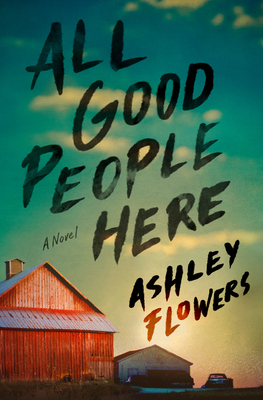
In All Good People Here, Ashley Flowers, the voice behind the hit true crime podcast Crime Junkie, makes her debut as a novelist with a story that feels both familiar and haunting. Set in the small, secretive town of Wakarusa, Indiana, this mystery weaves together the unsolved murder of a young girl and the disappearance of another decades later, revealing just how dark “good people” can be when no one is watching.
The novel follows Margot Davies, a journalist who returns to her hometown to care for her uncle, Luke, who is battling early-onset dementia. Her homecoming quickly dredges up painful memories of her childhood neighbor, January Jacobs, whose abduction and murder twenty years earlier shattered the town. When another little girl, Natalie Clark, goes missing under eerily similar circumstances, Margot’s instincts as both a reporter and a survivor compel her to dig for the truth. But in a town that thrives on appearances, she finds that everyone seems to be hiding something.
Ashley Flowers captures the suffocating atmosphere of small-town life with remarkable authenticity. Wakarusa feels alive with gossip, secrets, and the quiet menace of people who prefer to keep their darkness buried. The influence of true crime storytelling is evident in the pacing and investigative structure of the narrative. Flowers uses alternating timelines and shifting perspectives to create a sense of unease, gradually peeling back the layers of the town’s collective guilt.
Many readers, like Nilufer Ozmekik, praised the book’s strong start and its effective incorporation of podcast-style tension. The blend of crime journalism and emotional drama adds depth to Margot’s character, whose determination to uncover the truth is both admirable and tragic. The novel also offers glimpses into Margot’s complicated relationship with her family, grounding the mystery in genuine human emotion.
However, others felt the story’s promise dimmed toward the end. The pacing slows in the second half, and the abrupt conclusion leaves more questions than answers. Melissa, one of the reviewers, expressed frustration with what she called a “non-ending” that made her wonder if she had missed a few pages. Indeed, the final confrontation feels sudden, and readers who crave closure may find the ambiguity unsatisfying.
Still, All Good People Here succeeds in capturing the obsessive allure of true crime the way unsolved cases can haunt both individuals and communities. Even with its flaws, the book’s themes of guilt, memory, and the corrosive effects of secrecy linger long after the final page.
As debut novels go, this is a compelling start. Flowers’s background in true crime gives her a unique voice in the genre, and it will be fascinating to see how she evolves as a fiction writer. If you enjoy mysteries steeped in small-town tension, morally complex characters, and the unnerving question of what people hide behind their smiles, All Good People Here is worth the read.


